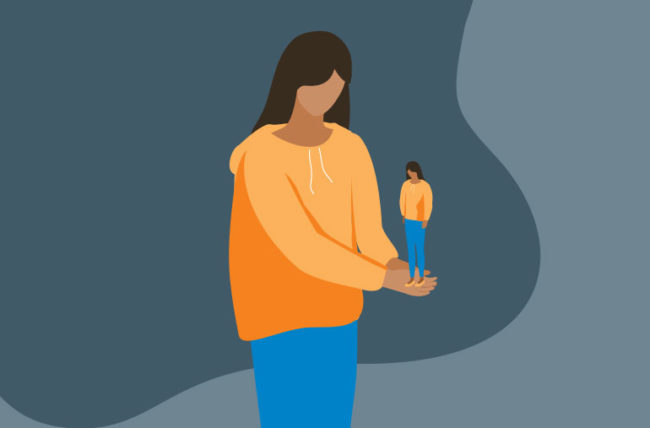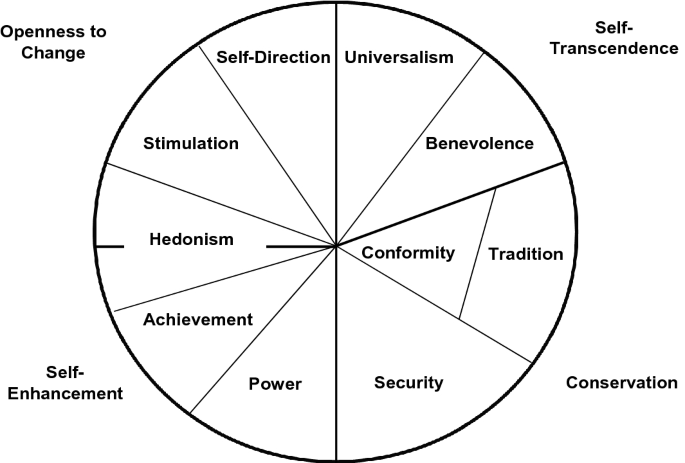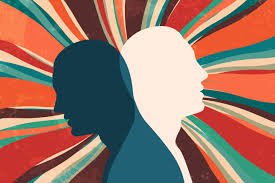"What do I want?" and "How do I feel?": Most therapy sessions boil down to these two essential questions. They can serve as a "home base" for you during sessions. If you reach a moment where you feel stuck and don't know what to say, you can always come back to these questions. ― Ryan Howes
Depression is a common and serious mental illness that can have a profound impact on a person's life. One of the ways that depression can affect people is by impacting their identity and self-construction.
Identity is a person's sense of who they are. It is made up of a person's values, beliefs, goals, and experiences. Self-construction is the process of developing and maintaining one's identity.
Depression can have a significant impact on one's identity and self-construction. However, whether self-constructions are negative or conflictual can vary depending on the individual and their experiences.
For some individuals with depression, their self-constructions may be negative, meaning they have a pessimistic view of themselves and their abilities. They may struggle with feelings of worthlessness, hopelessness, and a sense of being powerless in their lives. This negative self-construction can lead to a lack of self-esteem and a sense of disconnection from others.
On the other hand, some individuals may experience conflictual self-constructions. This means that their sense of identity is in conflict with their current life circumstances, leading to feelings of confusion, disorientation, and a sense of being lost or without direction. They may feel like they don't know who they are anymore and struggle to make decisions that align with their values and goals.
It's important to note that not all individuals with depression experience negative or conflictual self-constructions. Some individuals may have a more positive self-construction but still struggle with depression due to other factors such as chemical imbalances or life stressors.
Regardless of the type of self-construction, it's essential to seek support and treatment for depression. Therapy, medication, and other forms of treatment can help individuals manage symptoms and work towards a more positive self-construction that aligns with their values and goals.
Here are some additional tips for managing depression and improving your identity and self-construction:
--------
More info:


 pubmed.ncbi.nlm.nih.gov
pubmed.ncbi.nlm.nih.gov

 www.ncbi.nlm.nih.gov
www.ncbi.nlm.nih.gov

 www.nature.com
www.nature.com
Depression is a common and serious mental illness that can have a profound impact on a person's life. One of the ways that depression can affect people is by impacting their identity and self-construction.
Identity is a person's sense of who they are. It is made up of a person's values, beliefs, goals, and experiences. Self-construction is the process of developing and maintaining one's identity.
Depression can have a significant impact on one's identity and self-construction. However, whether self-constructions are negative or conflictual can vary depending on the individual and their experiences.
For some individuals with depression, their self-constructions may be negative, meaning they have a pessimistic view of themselves and their abilities. They may struggle with feelings of worthlessness, hopelessness, and a sense of being powerless in their lives. This negative self-construction can lead to a lack of self-esteem and a sense of disconnection from others.
On the other hand, some individuals may experience conflictual self-constructions. This means that their sense of identity is in conflict with their current life circumstances, leading to feelings of confusion, disorientation, and a sense of being lost or without direction. They may feel like they don't know who they are anymore and struggle to make decisions that align with their values and goals.
It's important to note that not all individuals with depression experience negative or conflictual self-constructions. Some individuals may have a more positive self-construction but still struggle with depression due to other factors such as chemical imbalances or life stressors.
Regardless of the type of self-construction, it's essential to seek support and treatment for depression. Therapy, medication, and other forms of treatment can help individuals manage symptoms and work towards a more positive self-construction that aligns with their values and goals.
Here are some additional tips for managing depression and improving your identity and self-construction:
- Connect with others. Depression can make you feel isolated and alone. It is important to connect with others who understand what you are going through. This could include friends, family, a therapist, or a support group.
- Take care of yourself. This includes getting enough sleep, eating healthy foods, and exercising regularly. Taking care of your physical health can help to improve your mental health.
- Set realistic goals. When you are depressed, it can be difficult to see the light at the end of the tunnel. It is important to set small, achievable goals for yourself. This will help you to feel a sense of accomplishment and progress.
- Be patient with yourself. Recovery from depression takes time. Don't get discouraged if you don't see results immediately. Just keep working at it, and you will eventually reach your goals.
--------
More info:
Developing Insight into Self-Concept (Worksheet)
https://forum.psychlinks.ca/threads/insight-into-self-concept.901/ Developing Insight into Self-Concept The way my mother talks/talked to me: She makes/made me feel: The way my father talks/talked to me: He makes/made me feel: In my family...
forum.psychlinks.ca

Intrapersonal conflict in goals and values of patients with unipolar depression - PubMed
Given the cross-sectional design of the study, the findings of this exploratory study do not allow for conclusions regarding the role of intrapersonal conflicts in the development and course of depression. Nevertheless, the high levels of intrapersonal conflicts observed in the study suggest...

Cognitive conflicts in major depression: Between desired change and personal coherence
The notion of intrapsychic conflict has been present in psychopathology for more than a century within different theoretical orientations. However, internal conflicts have not received enough empirical attention, nor has their importance in depression ...

Value priorities and value conflicts in patients with mental disorders compared to a general population sample - Scientific Reports
Personal values are considered as guiding principles for humans’ attitudes and behavior, what makes them an essential component of mental health. Although these notions are widely recognized, investigations in clinical samples examining the link between values and mental health are lacking. We...

